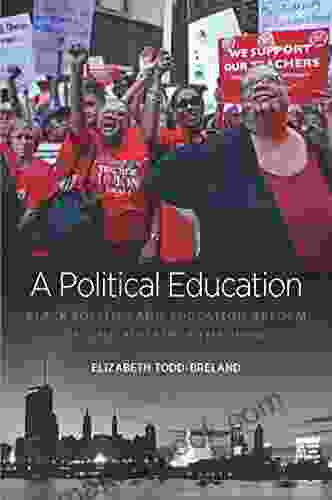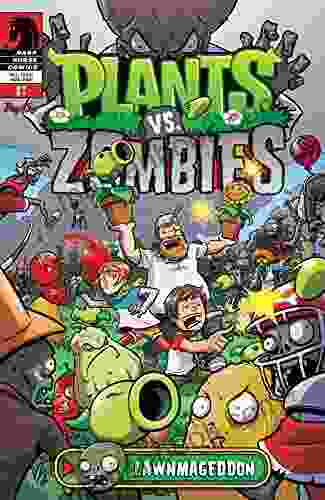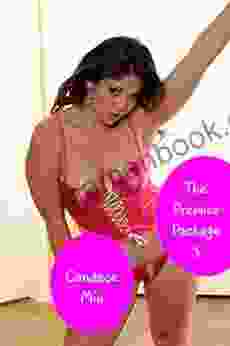Black Politics and Education Reform in Chicago Since the 1960s: Justice, Power, and Education

5 out of 5
| Language | : | English |
| File size | : | 8187 KB |
| Text-to-Speech | : | Enabled |
| Enhanced typesetting | : | Enabled |
| Word Wise | : | Enabled |
| Print length | : | 329 pages |
| Screen Reader | : | Supported |
The history of Black politics and education reform in Chicago since the 1960s is a complex and tumultuous one, marked by both progress and setbacks. The Civil Rights Movement of the 1960s brought about major changes in American society, including the passage of landmark legislation such as the Civil Rights Act of 1964 and the Voting Rights Act of 1965. These laws helped to dismantle the system of Jim Crow segregation in the South and paved the way for increased political participation by African Americans.
In Chicago, the Civil Rights Movement had a profound impact on the city's Black community. Black voters played a key role in the election of Harold Washington as mayor in 1983, making him the first African American mayor of a major American city. Washington's election was a watershed moment for Black politics in Chicago, and it led to a number of important reforms in the city's public schools.
However, the progress made during the 1960s and 1970s was not always sustained. In recent years, Chicago's public schools have been plagued by a number of problems, including underfunding, overcrowding, and violence. These problems have disproportionately affected Black students, who make up the majority of the city's public school population.
Despite the challenges, there are also signs of hope. In recent years, there has been a growing movement for education reform in Chicago. This movement is led by a diverse coalition of parents, teachers, community activists, and elected officials. The movement is calling for a number of reforms, including increased funding for public schools, smaller class sizes, and more support for teachers.
The Civil Rights Movement and Black Politics in Chicago
The Civil Rights Movement of the 1960s had a profound impact on Black politics in Chicago. Prior to the Civil Rights Movement, Black voters in Chicago were largely disenfranchised. They were often prevented from voting through a variety of手段, such as poll taxes, literacy tests, and intimidation.
The Civil Rights Movement helped to break down these barriers to voting. In 1965, the Voting Rights Act was passed, which outlawed discriminatory voting practices. This law had a major impact on Black voter turnout in Chicago. In the 1964 mayoral election, only 28% of Black voters turned out. In the 1968 mayoral election, that number had increased to 62%.
The increased Black voter turnout in Chicago led to the election of Harold Washington as mayor in 1983. Washington was the first African American mayor of a major American city. His election was a watershed moment for Black politics in Chicago, and it led to a number of important reforms in the city's public schools.
Harold Washington and Education Reform in Chicago
Harold Washington was a lifelong advocate for education. He believed that education was the key to improving the lives of Black people and other marginalized groups. As mayor, Washington made a number of important reforms to the city's public schools. These reforms included:
* Increasing funding for public schools * Reducing class sizes * Hiring more teachers * Expanding early childhood education programs * Establishing magnet schools * Giving parents more say in the education of their children
Washington's reforms had a positive impact on the city's public schools. Test scores improved, graduation rates increased, and more students went on to college. However, Washington's reforms were also met with resistance from some quarters. Some white residents of Chicago resented the increased funding for Black schools. Others objected to the expansion of magnet schools, which they saw as a form of "reverse discrimination."
Despite the resistance, Washington remained committed to his education reforms. He believed that these reforms were essential to improving the lives of Black children and other marginalized groups.
Education Reform in Chicago After Harold Washington
After Harold Washington's death in 1987, the pace of education reform in Chicago slowed down. However, some progress was made. In 1995, the city of Chicago adopted a new school reform plan called the Chicago School Reform Act. This plan called for a number of changes to the city's public schools, including:
* Giving principals more autonomy * Creating smaller administrative units * Expanding charter schools * Using data to drive decision-making
The Chicago School Reform Act had some positive results. Test scores improved, and graduation rates increased. However, the plan also had some unintended consequences. The creation of smaller administrative units led to the loss of jobs for many teachers and administrators. The expansion of charter schools led to increased segregation in the city's public schools.
In recent years, there has been a growing movement for education reform in Chicago. This movement is led by a diverse coalition of parents, teachers, community activists, and elected officials. The movement is calling for a number of reforms, including:
* Increased funding for public schools * Smaller class sizes * More support for teachers * A moratorium on new charter schools * The expansion of early childhood education programs
The movement for education reform in Chicago is still in its early stages, but it has already made some progress. In 2019, the city of Chicago adopted a new school reform plan called the Chicago Public Schools Student Success Plan. This plan calls for a number of changes to the city's public schools, including:
* Increasing funding for public schools * Reducing class sizes * Hiring more teachers * Expanding early childhood education programs * Creating new magnet schools * Giving parents more say in the education of their children
The Chicago Public Schools Student Success Plan is a promising step forward for education reform in Chicago. However, much work remains to be done. The plan needs to be fully funded, and it needs to be implemented effectively. In addition, there needs to be a continued commitment to addressing the root causes of educational inequality in Chicago.
The history of Black politics and education reform in Chicago since the 1960s is a complex and tumultuous one. There have been both progress and setbacks. However, there is also reason for hope. The movement for education reform in Chicago is growing, and it is making progress. With continued commitment and effort, it is possible to achieve educational equity for all students in Chicago.
5 out of 5
| Language | : | English |
| File size | : | 8187 KB |
| Text-to-Speech | : | Enabled |
| Enhanced typesetting | : | Enabled |
| Word Wise | : | Enabled |
| Print length | : | 329 pages |
| Screen Reader | : | Supported |
Do you want to contribute by writing guest posts on this blog?
Please contact us and send us a resume of previous articles that you have written.
 Top Book
Top Book Novel
Novel Fiction
Fiction Nonfiction
Nonfiction Literature
Literature Paperback
Paperback Hardcover
Hardcover E-book
E-book Audiobook
Audiobook Bestseller
Bestseller Classic
Classic Mystery
Mystery Thriller
Thriller Romance
Romance Fantasy
Fantasy Science Fiction
Science Fiction Biography
Biography Memoir
Memoir Autobiography
Autobiography Poetry
Poetry Drama
Drama Historical Fiction
Historical Fiction Self-help
Self-help Young Adult
Young Adult Childrens Books
Childrens Books Graphic Novel
Graphic Novel Anthology
Anthology Series
Series Encyclopedia
Encyclopedia Reference
Reference Guidebook
Guidebook Textbook
Textbook Workbook
Workbook Journal
Journal Diary
Diary Manuscript
Manuscript Folio
Folio Pulp Fiction
Pulp Fiction Short Stories
Short Stories Fairy Tales
Fairy Tales Fables
Fables Mythology
Mythology Philosophy
Philosophy Religion
Religion Spirituality
Spirituality Essays
Essays Critique
Critique Commentary
Commentary Glossary
Glossary Bibliography
Bibliography Index
Index Table of Contents
Table of Contents Preface
Preface Introduction
Introduction Foreword
Foreword Afterword
Afterword Appendices
Appendices Annotations
Annotations Footnotes
Footnotes Epilogue
Epilogue Prologue
Prologue Fotis Thimodeas
Fotis Thimodeas Kindle Comixology
Kindle Comixology Liam Naden
Liam Naden L Wilder
L Wilder Stanley Meisler
Stanley Meisler Kate Durbin
Kate Durbin Julissa Cardenas
Julissa Cardenas K S Villoso
K S Villoso Gus Garcia Roberts
Gus Garcia Roberts Jim Bryant
Jim Bryant Melissa Dickson
Melissa Dickson Kronos Ananthsimha
Kronos Ananthsimha Dave Grossman
Dave Grossman Jesse Fox
Jesse Fox Maggie Humm
Maggie Humm Jessie Hewitson
Jessie Hewitson Ps Mathew
Ps Mathew London Miller
London Miller Alix Nelson Frick
Alix Nelson Frick Manitoba Hal Brolund
Manitoba Hal Brolund
Light bulbAdvertise smarter! Our strategic ad space ensures maximum exposure. Reserve your spot today!

 Gregory WoodsThe Joker Presents: Puzzlebox 2024 13 – A Harrowing Test of Logic, Deduction,...
Gregory WoodsThe Joker Presents: Puzzlebox 2024 13 – A Harrowing Test of Logic, Deduction,...
 Hamilton BellDive into the Enchanting World of "The Fisher Brothers": A Love Story that...
Hamilton BellDive into the Enchanting World of "The Fisher Brothers": A Love Story that... Esteban CoxFollow ·13.3k
Esteban CoxFollow ·13.3k Clarence BrooksFollow ·8.2k
Clarence BrooksFollow ·8.2k Mikhail BulgakovFollow ·12.6k
Mikhail BulgakovFollow ·12.6k Duane KellyFollow ·19.6k
Duane KellyFollow ·19.6k Nathan ReedFollow ·6.7k
Nathan ReedFollow ·6.7k Gilbert CoxFollow ·13.7k
Gilbert CoxFollow ·13.7k Eugene PowellFollow ·2.5k
Eugene PowellFollow ·2.5k John SteinbeckFollow ·11.9k
John SteinbeckFollow ·11.9k

 Ernest Powell
Ernest PowellBenefits of Corporal Punishment: A Review of the...
Corporal punishment is a form of physical...
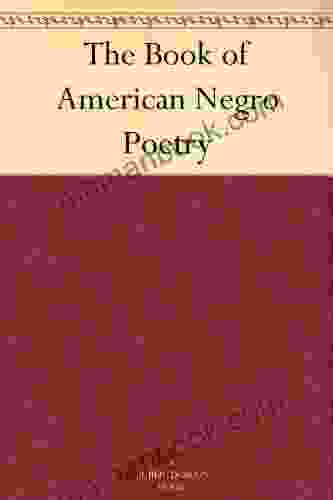
 Bobby Howard
Bobby HowardThe Development and Significance of African American...
African American...
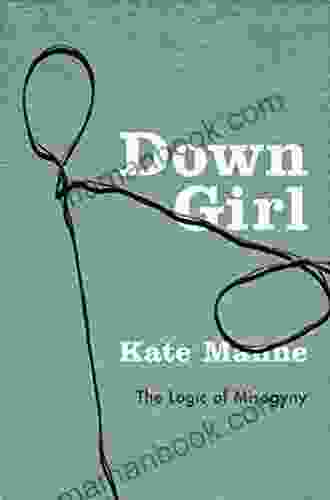
 Guy Powell
Guy PowellDown Girl: The Logic of Misogyny - A Comprehensive...
In her groundbreaking work,...
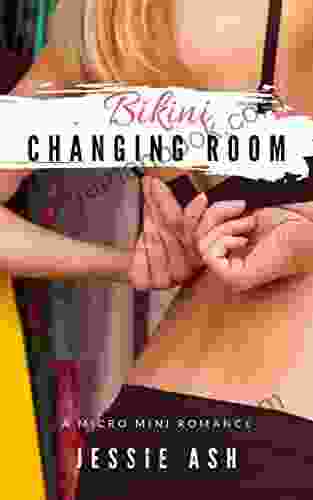
 Forrest Blair
Forrest BlairThe Bikini Changing Room: A Micro Mini Romance
In the heart of...
5 out of 5
| Language | : | English |
| File size | : | 8187 KB |
| Text-to-Speech | : | Enabled |
| Enhanced typesetting | : | Enabled |
| Word Wise | : | Enabled |
| Print length | : | 329 pages |
| Screen Reader | : | Supported |


